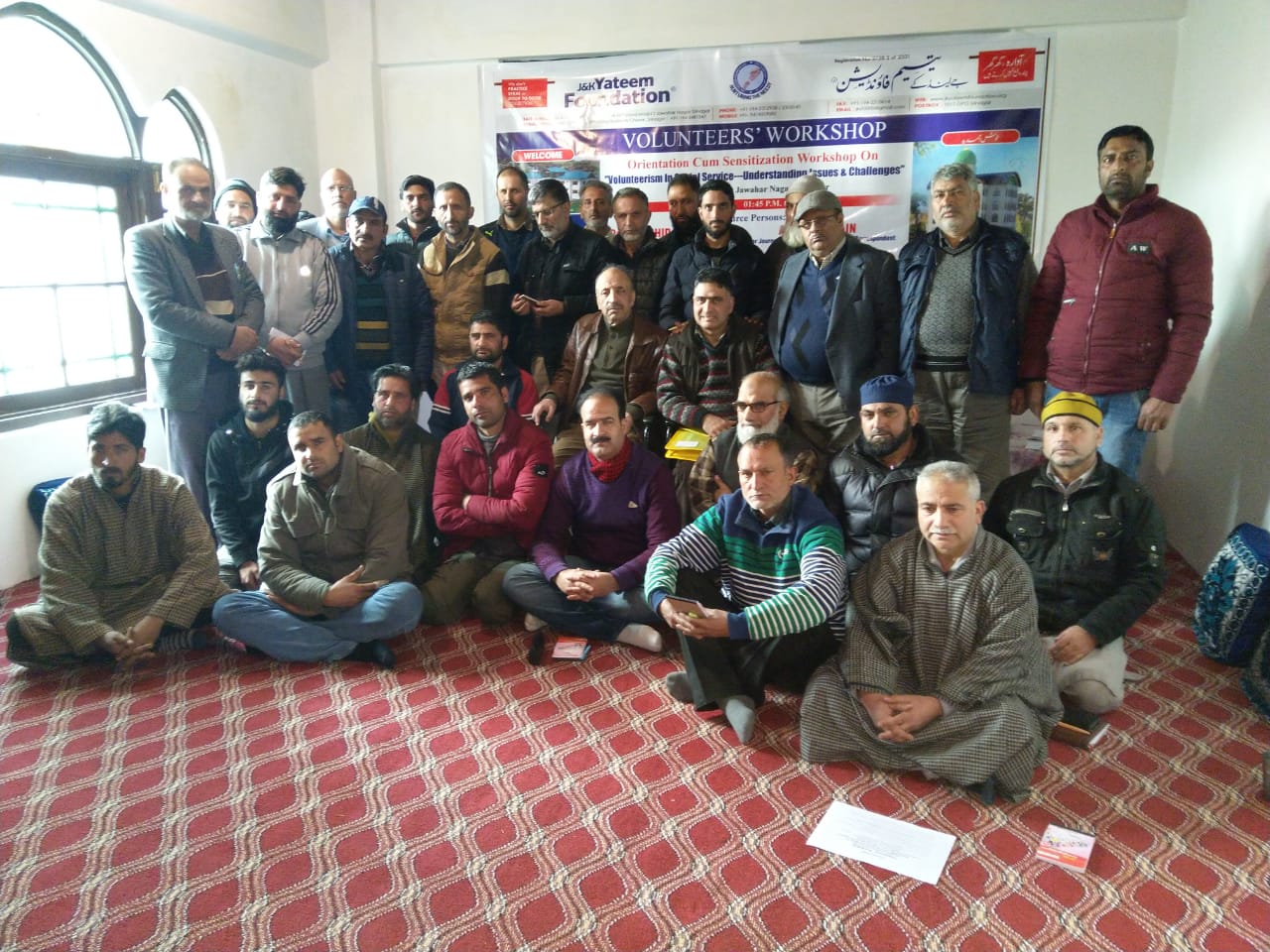Last week when the film Mission Kashmir’s cast celebrated 20 years of the ‘landmark’ film, a federal investigator raided the charity where the protagonist of the flicker was managed to come out of his PSTD and helped to live a normal life, all happening coincidently after two decades, writes Masood Hussain

Vidhu Vinodh Chopra’s masala film Mission Kashmir celebrated twenty years last week. It was a major Bollywood exercise to harvest the Kashmir tragedy and the media hype led to an exclusive screening of the film for the then President, R K Narayanan and also for L K Advani.
Since all the cinema halls in Kashmir remain locked since 1990, people took their own time in managing to watch the movie. Knowing the limitations of the filmmaker and the expectations of his market, sections of the Kashmir audience did praise Chopra for, at least, attempting to be slightly different from the dream-town mill.
The storyline was slightly different. Mission Kashmir told the story of an orphaned Kashmir boy, played by Hritik Roshan, who grew at the home of a police officer, a role played by Sanjay Dutt. As he grew up, he came to know that the officer, in whom he saw his father-like figure was actually the killer of his father. Driven by the hate and anger to avenge his father’s murder, the boy becomes a militant and eventually ends up destroying Hazratbal and Shankaracharya temple in Srinagar. With Priety Zinta as the lead actress, the story was told with impressive sequences and cinematography.
Whether or not the storyline was linked, but the fact is that the Kashmir audience did saw Gazi Hassan Bhat as the boy, the main protagonist of Mission Kashmir. He was the lone survivor in a dastardly act that took place in a remote Doda meadow during the intervening night of June 23 and 24, 1998. His father, mother, sister and aunt were the four persons that were assassinated by a group of counter-insurgents while they were grazing their herds in the lush green Mashla meadows, almost an hour-long trek from their Kotal home in Sazan belt, almost 14 km from Doda.
When the film was released on October 27, 2000, Gazi’s plight was in news everywhere. Everybody was under the impression that the boy has been adopted by somebody from the security set up. However, it took two more years for this myth to explode when Gazi, at the age of four was admitted to an orphanage in Srinagar, early 2002.

“I do not remember how he landed in our orphanage,” Mohammad Ayub, the then warden at the Yateem Foundation run Bait-ul-Hilal in Srinagar said. “But we knew that he was in trauma because his entire family had been annihilated.”
For the next eight years, Ayub said they had to give him special care. “He would remain isolated, avoid playing and talking to people, would hardly talk to anybody and was drowned in his own tragedy,” Ayub said. “We might have done endless counselling sessions to help him get back on track.”
The Foundation was a quick response by a group of medicos who were seeing unfolding the tragedies in their society from a very close angle. They were watching the surging destitution and were unable to help beyond offering medicines and medical help.
One of them was Dr Raouf Mohiuddin Malik. “Watching the people die on the stretchers would always force some of us that we need to do something more, maybe raise some petty donations that would help a poor man to take his wife’s corpse home or something more than that,” Malik, who has dissociated from the Foundation way back told this reporter in 2004. One day, a group of interns went picnicking to Afrawat in Gulmarg where Malik shared his idea. “The response was instant – all the 60 interns committed Rs 1000, a month for three months and it became Rs 1,80,000.”
As they started implementing the project by identifying the destitute kids and enrolling them into the schools, the society responded. People started coming to them with donations: Rs 12.57 lakh in 2000-01, Rs 24.96 lakh in 20001-02, Rs lakh 44.42 in 2002-03 and Rs 74 lakh in 2003-04. New faces joined the welfare movement and the institution became a reality.
Now, the Foundation operations are across Jammu and Kashmir. They run orphanages, have evolved systems to sustain the lives of vulnerable women as they would religiously intervene in natural calamities like earthquakes and floods.
In Foundation homes, as is the case with other similar operations, there is no discrimination. Once I traced minor orphans from diverse backgrounds who shared the same roof and the same story – Omer Khan, son of a slain surrendered militant, Rashid Mughal; son of a soldier killed during Kargil war; Nasir, a slain militant’s son and Ayaz, son of a cleric gunned down by militants for being a mole of the army. Gazi, who was the acute case of post-traumatic stress disorder (PSTD) was also with them.
“It could be the story of Gazi that Vidhu Vinod Chopra told the world in his Mission Kashmir,” Malik told me. “He got the best for telling the story. But what happened to his character that his IG Khan never adopted.”
It was in this Foundation where the boy was brought up and enrolled in a school and helped to become an almost normal student. He passed his middle school examination from Srinagar and then decided to go home and live with his uncle in the village. “By the time, he left, he was able to at least communicate properly,” Ayub remembers bidding him adieu one fine day in 2010.
Ayub was kind enough to trace the boy many years later and provide his contact. As this reporter dialled his number, without picking the phone the dial tune told his story. It was legendry Mohammad Rafi singing: “Akela Hoon Main Is Duniya Mein, Ha Ha Aaa, Akeal Houn Main, Koi Sathi Hai Tou Mera Saya,” (I am all alone in this world. If there is somebody with me, it is my shadow).
It is the mesmerising song of 1962 Bollywood movie, Baat Eak Raat Ki. The film is completely different but tells part of Gazi’s story.
On phone, Gazi seemed hugely better, from the day I had seen him in the orphanage in 2004. “I did my matriculation from the army school in Doda and then I went to a Jammu College where I completed my graduation,” Gazi said.
Gazi said he is living with his uncle who somehow survived the massacre that night in which he had lost his wife, Gazi’s aunt. “I got a clerical job in 2018 and I am living with my uncle,” Gazi said. “But I do not go to the home that is ours, we clean it but we do not live there.”
Still reluctant to talk of the night in which he could survive with his uncle, Mohammad Shafi, Gazi said the family had gone with their herds to the meadows when the attack was mounted on them that night. It led to the killing of his father Mohammad Hussain, his mother, Sakina Begum, his sister, Shabina and his aunt, Sameena. “My two other sisters who were married were not with us that day,” Gazi said.
Who killed his family, he says he has no idea but people know. “The only thing, I can say is that those who annihilated my family are roaming free,” he said. His uncle, however, according to a 1994 Human Rights Watch report Behind The Kashmir Conflict had filed a police case and offered details about who assailants were. “I was there when it happened,” he is quoted saying in the report. “I could not see in the dark exactly who they were, but they were a mix of army and VDC.”
What was a twist in the tale last week – also coinciding with Mission Kashmir’s 20 years, was National Investigation Agency (NIA), the federal investigator, as part of its investigations across India raided a number of non-governmental organisations and charities, mostly in Kashmir. Most of these social groups have evolved in response to the situation that Kashmir survived in the past 30 years. It included Yateem Foundation, the group that helped Gazi to get shelter and education at the most the challenging phase of his life, that was raided on Day 2 of the operation.
After the first round of raids, the NIA issued a statement saying the agency has registered a case under sections 120B (criminal conspiracy) and 124A (sedition) of the Indian Penal Code (IPC) and relevant sections of the Unlawful Activities (Prevention) Act (UAPA), 1967 on October 8, 2020. This was a follow-up to the receipt of “credible information that certain NGOs and Trusts are collecting funds at home and abroad through donations and business contributions, and are utilising these funds for secessionist and terrorist activities in J&K.”
On the second day, another group of NGOs was raided and scanned. The outcome of the exercise may take some time to come out.
Unlike NIA, the former commander of Srinagar based 15 Corps gave a better understanding of the exercise. “NIA raids in Kashmir underway. This is the true dismantlement of the Ecosystem which enables terror in Kashmir,” Lt Gen (retd) Syed Ata Hasnain tweeted. “Hopefully reaching a crucial optimum point of no return. Networks are the bane, run by OGWs.”
Wanted to ask Gazi, now a 24-yeard old adult, about the “ecosystem” but could not gather courage not because of his tragedy but the haunting dial tune.















